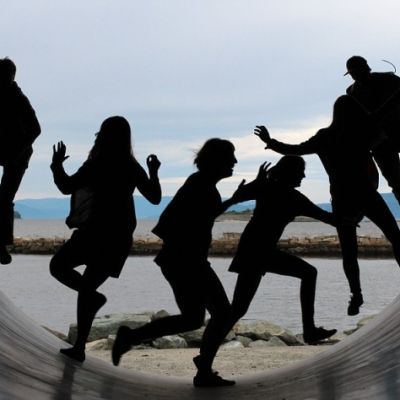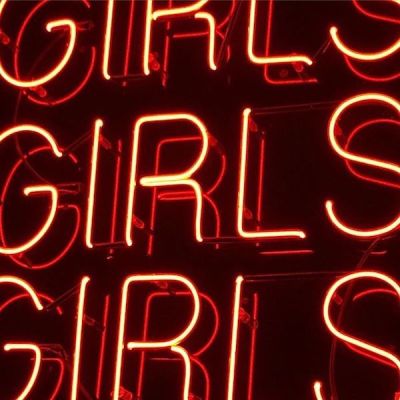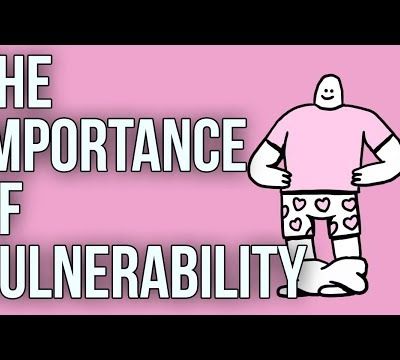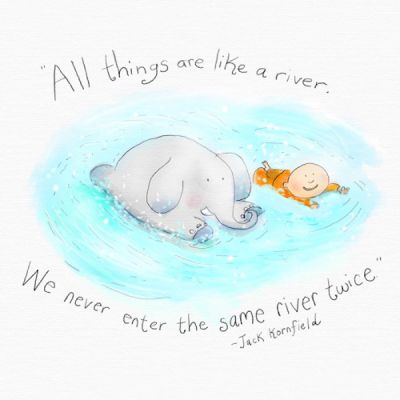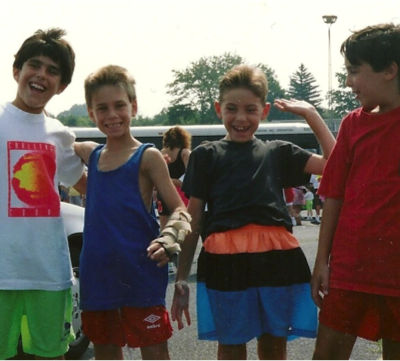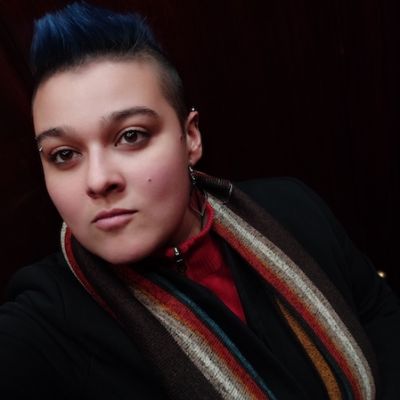SISA spaces
Wellbeing and sexuality for me therefore entailed thinking through and dealing with violence, understanding and acknowledging it as not the entirety of one’s experience, and going through a process of healing.
Our body is home. We exercise, we eat right. We adorn it with jewels and tattoos. We live well and breathe easier if our home (our body) is clean, fed and rested. Come home to yourself. Masturbation is one of the easiest ways home.
“I feel comfortable with who I am,” he responded. “I’m at ease with myself. I don’t wake up and hate myself. I can’t tell you how amazing that feels.”
“I know how that feels,” I told him.
Puu, an episodic comic (consisting of 92 serialised episodes) created in 2016 by Nabigal-Nayagam Haider Ali – going by Nabi online – is woven together with vast, expansive threads of similar intense spiritual moments and reflections on devotion, faith, and love.
In a way, the expression of vulnerability can be a foundation of trust and mutual support in a relationship, often leading to a sharing of burdens and the building of a deepened connection and solidarity.
We found these heart-warming doodles that are dedicated to staying conscious of things that matter for our personal well-being and our relationships with others but that we tend to lose touch with from time to time.
Are certain forms of femininities denigrated more than others? Not just by misogynists but also by feminists? Is there a particular way of manifesting an ‘appropriate’ femininity, one that is just right, and is not ‘too girly’ or ‘too tomboyish’?
When I finally came out to myself at age 16 and made it to a free queer youth space, I couldn’t wait to be accepted among folks who didn’t play by society’s heterosexist rules of masculine and feminine as polar opposites.
Desiring motherhood meant veering into a more ‘girly’ territory, a notion that I had simultaneously been fighting and trying to embrace since childhood. I had understood that to be a feminist I had to be independent, be wary of men, dislike families and relationships.
I keep on hold the colours and prints to wrap you in gentle delicate flowers or little cartoon lions and boys with fists that say Bam and Super / until I know what lies between your legs the cigar or the smile of consolation if you’re the first
Connection is essential for our survival – physical, mental, emotional and spiritual. We connect with people, form networks of care and support, and in a sense weave webs of safety and comfort that we can turn to when stressed or simply want to infuse a dose of joy into our day.
…even if people have little in common, once they enter these spaces of solidarity, they are connected to a larger community. These spaces become wellsprings of an unspoken sense of safety and mutual support between individuals of communities that share a sense of having been othered.
Ethics of Care offers a normative paradigm that goes beyond the neat distinctions of morally guided ‘right’ or ‘wrong’ actions to incorporate social responsibility, wherein we learn how to shape our responses on the basis of the needs of a community’s members.
As a queer person, it’s hard not to think right away of chosen family. A term that has become relatively well-known by now, but not always understood I find. One of the primary support systems I personally, like many queer folx, depend on, are ones that we develop and nurture over time.
To be a support system is to be a safe space for them where they can reflect upon, experiment with and understand themselves. A space where people not only come to terms with their individual selves, sexual or otherwise, but also where they become increasingly aware of their own rights.

